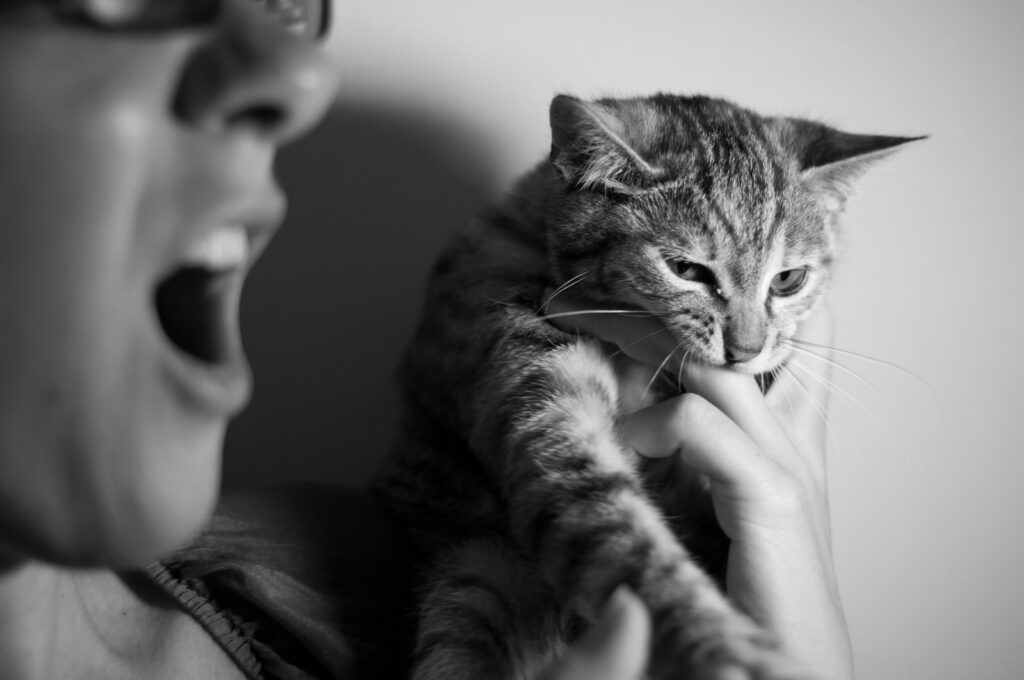Kittens are playful creatures, but they can also be vicious when they’re angry or upset. That’s why it’s so important to teach your kitten good manners from an early age – not just to keep them safe, but also to help prevent them from biting.
Here are some tips for preventing kitten biting and stopping the behavior before it starts.
Understand the Causes of Kitten Biting

There are many reasons why cats might bite, but some of the most common reasons involve kittens who are still learning how to socialize and behave around people.
Kittens who are bitten may feel overwhelmed or scared and may try to assert dominance by biting in an attempt to show their owner that they’re not afraid.
If you’ve noticed that your kitten is biting more often or harder than usual, you may want to take a look at your home environment and see if there are any factors that could be contributing.
For example, if your kitten is frequently playing with other cats or dogs, it may be difficult for them to avoid getting bit as they play. If your home is too noisy or there are too many things moving around for the kitten to focus on, they might become anxious and start biting.
If you think your kitten is biting because of anxiety or fear, you can try some simple techniques to help them calm down and feel more comfortable around people.
For example, you can feed them in a quiet room where they have plenty of space to move around, allow them to sleep in a separate bedroom from you (if possible), or give them toys that they can play with without biting.
Identify the Signs of a Kitten in Trouble
If you’re like most cat owners, you’ve probably experienced at least one instance of your kitten biting you. In fact, according to the ASPCA, up to 75% of kitten bites occur before the cat is six months old.
While it’s possible that any kitty can bite – even a well-socialized one – there are some indications that your kitten may be in trouble. Here are five signs that your kitty may be biting out of desperation or fear:
1. Your kitten is constantly biting or scratching people or other animals.
2. Your kitten is always trying to escape from its enclosure or home.
3. Your kitten frequently bites furniture, walls, or other objects.
4. Your kitten has a history of being aggressive or destructive towards other cats or humans.
Handle a Kitten in Trouble Safely and Efficiently

If you find yourself dealing with a kitten that is biting or scratching you, there are a few things you can do to safely and efficiently stop the behavior.
The first step is to assess the situation and figure out what is causing the kitten to act out in this way. Is she being bullied by another animal in the home?
Is she feeling insecure and insecure about her surroundings? Once you have an idea of what is causing the problem, you can start to address it.
One of the most common causes of kitty biting is when they are trying to establish dominance over their owner or territory. You can help prevent this by providing your kitten with plenty of toys and interesting objects to play with, as well as by teaching them proper manners around people.
If your kitten starts biting in an attempt to get your attention or when they are stressed, try distracting them with a treat or game before you react.
If biting or scratching becomes a regular problem, it’s important to seek out professional help. A vet could prescribe medication for your cat to help reduce tension and anxiety, or might recommend training treatments such as operant conditioning therapy.
In any case, be prepared to invest time and effort in resolving the issue – but know that it will be worth it in the long run.
Get Professional Help if Necessary
If your kitten bites you, it’s important to get professional help. Cats bite for a variety of reasons and may not always realize their actions are harmful.
If the bite is severe or if toxins are injected into the skin, you may need medical attention. Here are some tips on how to stop a kitten from biting:
1) Keep your kitten confined to a specific space. This will help discourage them from biting.
2) Reward your kitten with treats and toys when they behave normally. This will help them understand that biting is not appropriate behavior.
3) If necessary, use positive reinforcement training methods such as clicker training or positive reinforcement feeding to teach your kitten that biting is not acceptable behavior.
